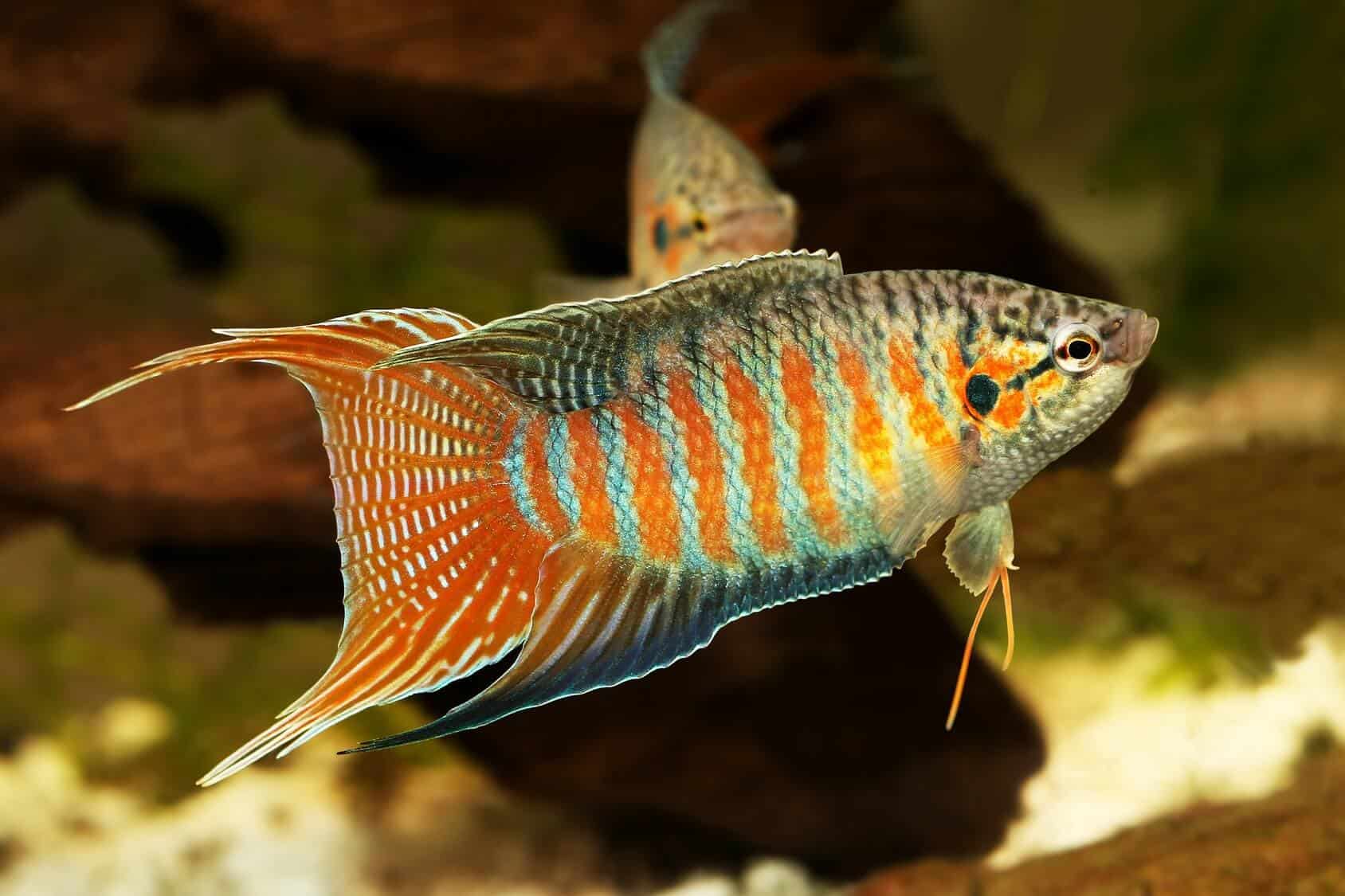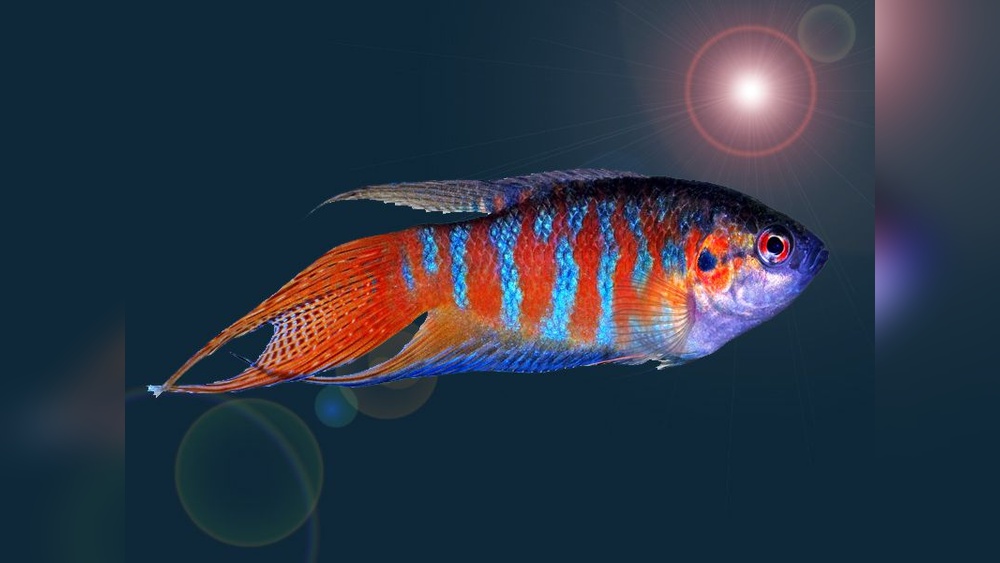If you want a beautiful and lively addition to your aquarium, paradise fish are an excellent choice. These vibrant, hardy fish bring color and personality to your tank, but to keep them healthy and happy, you need to know the right care steps.
Are you ready to discover how simple it is to create the perfect environment for your paradise fish? From tank setup to feeding and handling their sometimes feisty nature, this guide will give you all the tips you need. Keep reading to make sure your paradise fish thrive and brighten your home for years to come.
Paradise Fish Basics
Paradise fish are popular freshwater aquarium fish known for their vibrant colors and active behavior. Understanding their basic traits helps create a healthy environment for them. These hardy fish adapt well to various tank conditions, making them suitable for beginner hobbyists.
They need clean water, proper temperature, and a balanced diet to thrive. Knowing their physical features and natural habitat is essential for good care.
Physical Traits
Paradise fish display bright colors like blue, green, and red. Their bodies are elongated and slightly compressed sideways. Males often have longer fins and more vivid colors than females. These fish can grow up to 4 inches long. They also have distinctive dark vertical stripes on their sides. Their eyes are large and round, helping them spot food easily.
Natural Habitat
Paradise fish come from slow-moving waters in East Asia. They live in rice paddies, ponds, and small streams. These environments have plenty of plants and hiding spots. Water temperatures usually range from 64°F to 75°F. The water is slightly acidic to neutral, with soft to moderately hard water. This natural habitat provides calm waters and dense vegetation, which paradise fish prefer in captivity as well.
Tank Setup
Setting up the right tank is key for paradise fish care. These fish need a comfortable and healthy environment. Proper tank setup helps keep them active and stress-free. Focus on size, water quality, filtration, and decorations to create their ideal home.
Tank Size
Choose a tank of at least 20 gallons. Paradise fish need room to swim freely. A larger tank reduces aggression and stress. For multiple fish, increase the tank size accordingly. A spacious tank supports their natural behavior.
Water Parameters
Maintain water temperature between 72°F and 82°F. Paradise fish prefer slightly acidic to neutral water. Aim for a pH of 6.0 to 8.0. Keep water hardness moderate, around 5 to 20 dGH. Regular water changes keep conditions stable and clean.
Filtration Needs
Use a gentle filter to avoid strong currents. Paradise fish do not like fast water flow. A sponge filter or adjustable flow filter works well. Good filtration removes waste and keeps water clear. Clean the filter regularly to maintain efficiency.
Aquarium Decorations
Add plants and hiding spots for comfort and security. Use live or artificial plants to mimic their natural habitat. Include caves or driftwood to reduce stress. Leave open swimming areas to encourage activity. Decorations improve tank aesthetics and fish well-being.
Feeding Paradise Fish
Feeding Paradise Fish plays a vital role in their health and happiness. These fish thrive on a varied and balanced diet. Proper feeding supports their vibrant colors and active behavior. Understanding their diet needs and feeding habits helps keep them strong and lively in your aquarium.
Diet Options
Paradise Fish enjoy a mix of foods. Offer high-quality flakes or pellets as a staple. Supplement with live or frozen foods like brine shrimp and bloodworms. Vegetables such as blanched spinach or peas can be given occasionally. Variety ensures they get all necessary nutrients.
Feeding Schedule
Feed Paradise Fish twice a day for best results. Provide only what they can eat within two minutes. Regular feeding times create a healthy routine. Avoid feeding late at night to prevent water pollution. Consistency keeps your fish healthy and energetic.
Avoiding Overfeeding
Overfeeding leads to poor water quality and health problems. Remove any uneaten food after feeding. Use small portions to control intake. Watch your fish for signs of overeating, like bloating or sluggishness. Proper feeding helps maintain a clean, safe tank environment.

Credit: www.fishkeepingworld.com
Behavior And Temperament
Paradise fish are known for their striking colors and lively behavior. Understanding their behavior and temperament helps create a healthy tank environment. These fish have unique personalities that influence how they interact with others. Observing their actions closely ensures a peaceful aquarium.
Aggression Levels
Paradise fish show moderate to high aggression. Males can be very territorial, especially during breeding. They often flare their fins to warn rivals. Aggression increases in small tanks or overcrowded conditions. Providing enough space reduces fights and stress. Watching for signs of bullying helps protect weaker fish.
Compatibility With Tank Mates
Paradise fish do best with calm, larger fish. Avoid small or slow-moving species as they may get bullied. Good tank mates include peaceful gouramis and catfish. Avoid other aggressive fish to prevent constant fighting. Some keepers prefer keeping paradise fish alone to avoid conflicts. Careful selection of companions creates a balanced community.
Social Grouping Tips
Keeping one male with several females helps limit aggression. A ratio of two females to one male works well. Introducing fish simultaneously reduces territorial disputes. Provide plenty of hiding spots and plants for shelter. Regular tank maintenance and monitoring keep stress levels low. Social groups thrive with proper planning and care.
Health And Maintenance
Keeping paradise fish healthy requires regular attention and proper care. Their vibrant colors and active nature depend on a clean environment and balanced nutrition. Understanding their health needs helps prevent common problems and ensures a long life.
Common Diseases
Paradise fish can suffer from several diseases. Ich, fin rot, and fungal infections are common. Watch for white spots, ragged fins, or strange behavior. Early detection helps treat these issues quickly. Use medication as directed and isolate sick fish to stop spread.
Water Quality Management
Water quality is vital for paradise fish health. Keep the tank clean with regular water changes. Test water weekly for pH, ammonia, nitrite, and nitrate levels. Ideal pH ranges from 6.0 to 8.0. Maintain temperature between 68°F and 82°F. Use a good filter to remove waste and toxins.
Routine Care
Feed paradise fish a varied diet with flakes, pellets, and live food. Avoid overfeeding to prevent water pollution. Remove uneaten food promptly. Check fish daily for signs of stress or illness. Clean the tank and equipment regularly. Provide hiding spots to reduce stress and promote natural behavior.

Credit: freshwaterfishglobal.wordpress.com
Breeding Paradise Fish
Breeding Paradise Fish can be a rewarding experience for aquarium enthusiasts. These fish are known for their vibrant colors and interesting behaviors during spawning. Understanding their breeding needs helps ensure success and healthy offspring.
Paradise Fish breed naturally in calm waters with plenty of plants. They build bubble nests where the eggs develop. Observing their courtship and nesting habits provides insight into their care.
Sex Differences
Male Paradise Fish are more colorful and have longer fins. Their colors shine especially during breeding season. Females have duller colors and smaller fins. Males also tend to be more aggressive than females.
Breeding Conditions
Set the water temperature between 75°F and 80°F for breeding. Keep the tank calm with low water flow. Add floating plants to help males build bubble nests. Feed the fish high-quality live or frozen foods to stimulate spawning. Maintain clean water with regular checks to avoid stress.
Caring For Fry
After hatching, fry stay in the bubble nest for several days. Remove the parents after eggs hatch to prevent them from eating the fry. Feed the fry small foods like infusoria or crushed flakes. Change water frequently but gently to keep fry safe. Growth is rapid with proper care and nutrition.
Longevity And Growth
Understanding the longevity and growth of paradise fish is essential for proper care. These colorful fish can live several years with the right environment. Their size and lifespan depend on many factors. Providing good care helps them grow healthy and live longer. This section breaks down the key points about their lifespan and growth.
Lifespan Factors
Paradise fish usually live between 3 to 5 years. Some can live longer with excellent care. Water quality plays a big role. Keep the water clean and stable in temperature. Avoid sudden changes to reduce stress. A balanced diet supports their immune system. Stress from overcrowding or aggressive tank mates shortens their life. Regular tank maintenance helps prevent diseases. A peaceful and stable environment increases their lifespan.
Growth Expectations
Paradise fish grow slowly but steadily. They typically reach 3 to 4 inches in length. Growth depends on diet and tank conditions. Feeding high-quality food encourages steady growth. Avoid overfeeding, which can cause health problems. Provide enough space for swimming and exploring. A small tank limits their growth and health. Watch their growth to spot any problems early. Healthy growth leads to a vibrant and active fish.
Frequently Asked Questions
Are Paradise Fish Easy To Keep?
Paradise fish are hardy and adaptable, making them relatively easy to keep. They need clean water, moderate temperature, and peaceful tank mates. Regular feeding and a well-maintained tank help ensure their health and happiness. Avoid aggressive species to reduce stress and aggression.
How Many Paradise Fish Should I Keep Together?
Keep at least three paradise fish together, maintaining a ratio of two females per male to reduce stress.
What Is The Lifespan Of A Paradise Fish?
Paradise fish typically live 3 to 5 years in captivity. Proper care and stable water conditions extend their lifespan.
Do Paradise Fish Need A Filter?
Paradise fish benefit from a filter to maintain clean water and stable conditions. A gentle filter suits their habitat best.
What Tank Size Is Ideal For Paradise Fish?
A minimum of 20 gallons is best to give Paradise Fish enough swimming space.
How Often Should I Feed Paradise Fish?
Feed small amounts two times daily to avoid overfeeding and keep them healthy.
What Water Temperature Suits Paradise Fish Best?
Keep water between 72°F and 82°F for their comfort and health.
Can Paradise Fish Live With Other Fish Species?
They can, but avoid small or aggressive fish to prevent fights.
Conclusion
Caring for paradise fish can be simple and rewarding. These fish adapt well to many tank setups and tolerate a range of water conditions. Keep their environment clean and stable for best health. Feed them a varied diet to keep colors bright and energy high.
Watch for signs of stress or aggression among tank mates. Remember, a calm and balanced tank helps paradise fish thrive. Enjoy the beauty and activity these fish bring to your aquarium. Consistent care makes all the difference in their happiness and lifespan.

